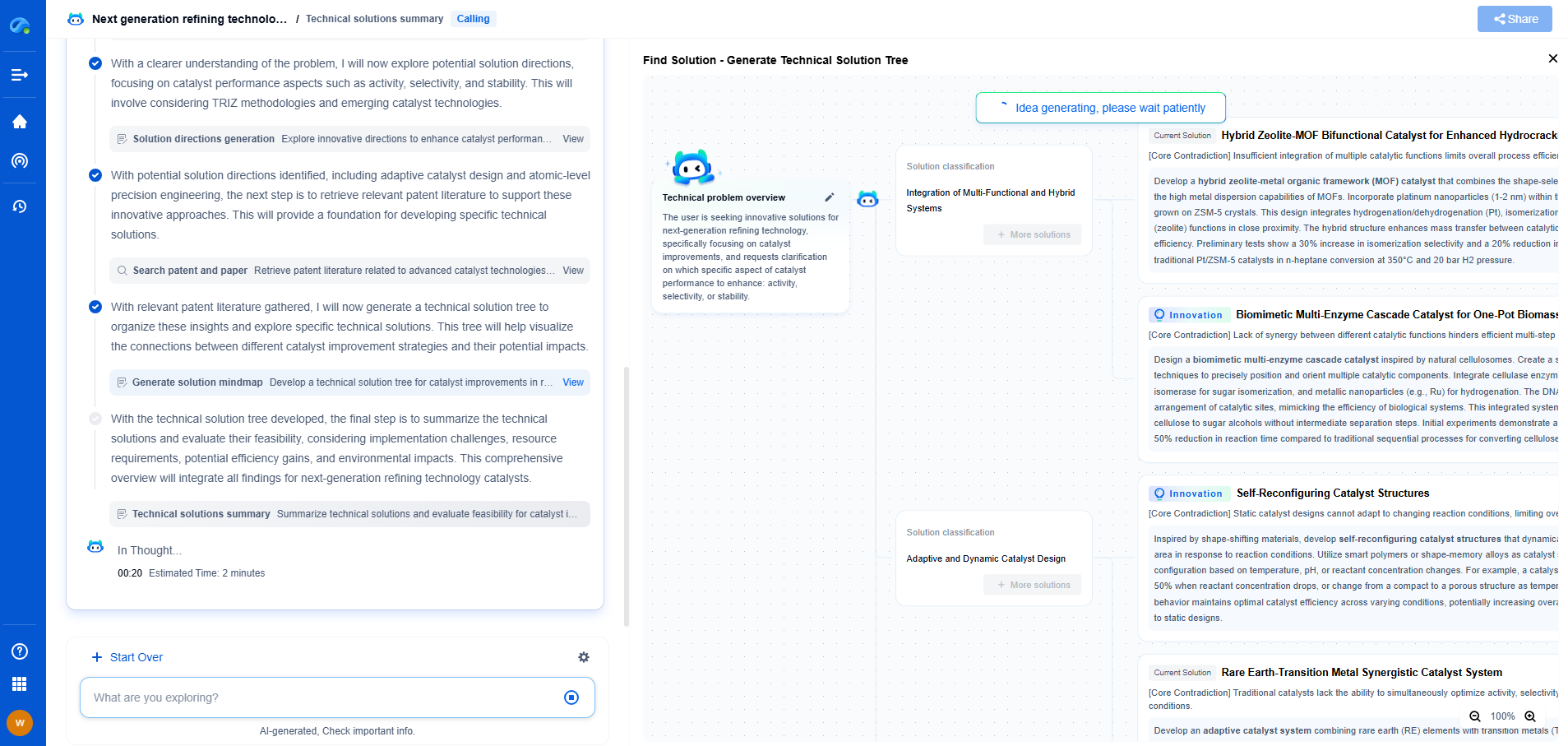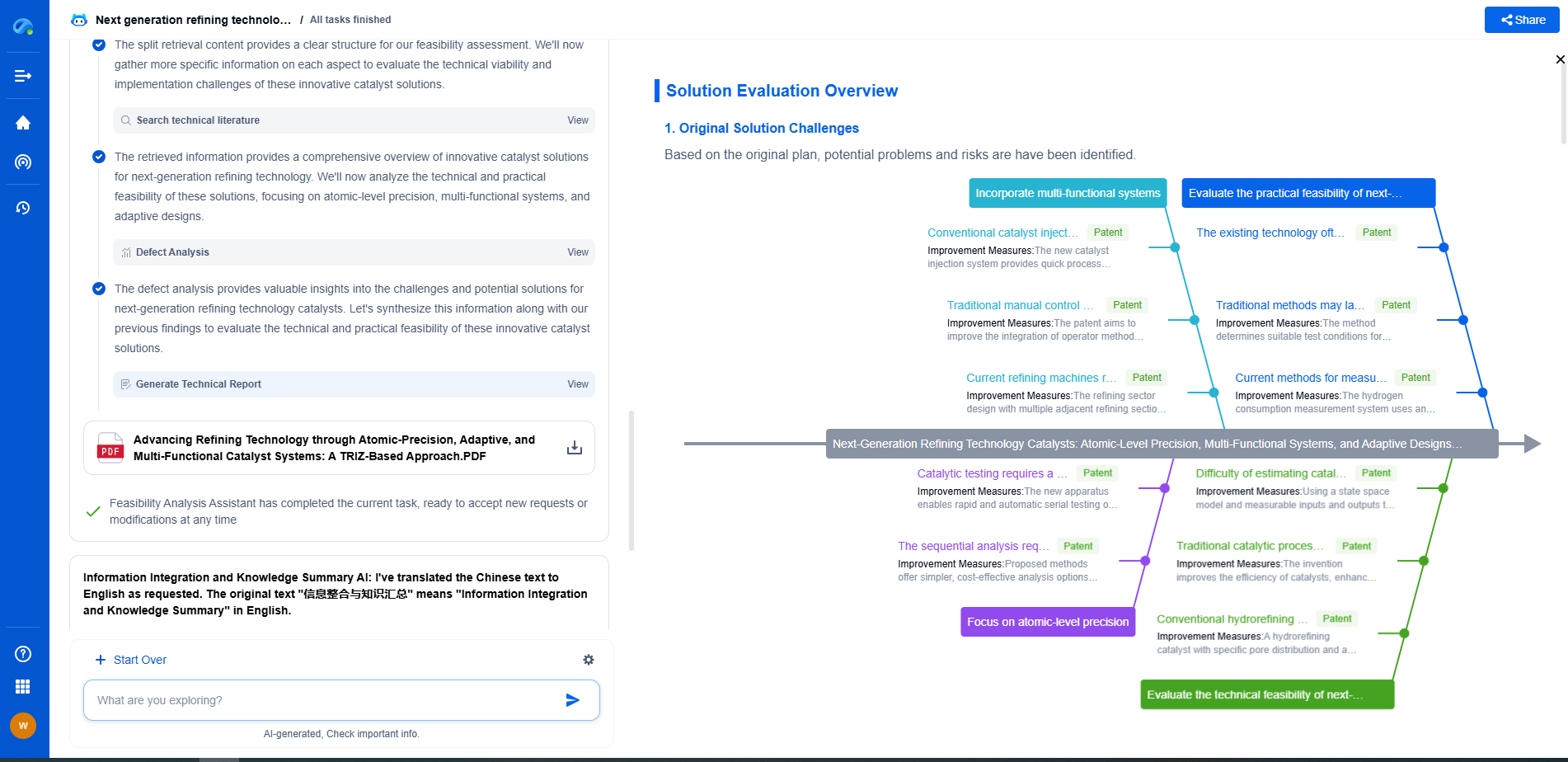The Metal-to-Metal Packer Comeback: How They Outlast Elastomers in Sour Service
JUN 20, 2025 |
In the realm of oil and gas extraction, particularly in challenging environments such as sour service, the selection of appropriate sealing technology is critical. Traditional elastomeric packers have long been a staple in the industry due to their flexibility and reliable sealing properties. However, the resurgence of metal-to-metal packers has piqued the interest of engineers and decision-makers alike. These packers are increasingly recognized for their ability to withstand the corrosive and high-temperature conditions that characterize sour service. This blog explores why metal-to-metal packers are making a strong comeback and how they outperform elastomers in the harshest of settings.
The Challenges of Sour Service
Sour service conditions, characterized by the presence of hydrogen sulfide (H2S) in reservoirs, pose significant challenges to well integrity. H2S is highly corrosive and can degrade many materials over time, leading to potential failures in sealing mechanisms. Traditional elastomeric materials, while offering flexibility and ease of installation, can suffer from rapid degradation in the presence of sour gases. This degradation can compromise the seal and lead to costly downtime and repairs. Therefore, the industry has been exploring alternatives that can provide more reliability and longevity.
The Advantages of Metal-to-Metal Packers
Metal-to-metal packers offer several distinct advantages over their elastomeric counterparts when it comes to sour service. First and foremost, metals such as stainless steel, Inconel, and other corrosion-resistant alloys are much more robust in the face of H2S exposure. These materials maintain their integrity over extended periods, reducing the frequency of maintenance interventions.
Additionally, metal-to-metal packers excel in high-pressure and high-temperature conditions. While elastomers may soften or lose their shape under extreme conditions, metal packers maintain a consistent seal, ensuring well integrity is preserved. This reliability translates into fewer operational disruptions and enhances the safety profile of drilling operations.
Design Innovations in Metal-to-Metal Packers
Recent advancements in engineering have further enhanced the appeal of metal-to-metal packers. Sophisticated design innovations such as adaptive sealing mechanisms and precision machining have improved the reliability and performance of these packers. The ability to precisely manufacture metal components means that metal-to-metal packers can be tailored to fit specific well conditions, providing a more customized solution than their elastomeric counterparts.
Furthermore, new coatings and surface treatments have been developed to enhance the corrosion resistance of metal packers even further. These advancements ensure that the packers can perform optimally even in the most aggressive sour environments, thus extending their operational life.
Case Studies: Success Stories in Sour Environments
Multiple case studies highlight the effectiveness of metal-to-metal packers in sour service. In one instance, a major oil company reported a substantial reduction in downtime when they switched from elastomeric to metal packers in a particularly sour field. The metal packers maintained an effective seal throughout the project, despite extreme pressures and temperatures, resulting in significant cost savings and enhanced operational safety.
In another example, a deepwater project experienced a major breakthrough with metal-to-metal packers. The project faced challenges with elastomers losing integrity at depths with high H2S concentrations. The introduction of metal-to-metal packers not only solved the integrity issues but also allowed for an increase in production rates, demonstrating the technology's capability to adapt and perform under challenging conditions.
Conclusion: The Future of Packers in Sour Service
As the demand for oil and gas continues to grow, and extraction moves into more challenging environments, the industry must adapt by employing the most reliable technologies available. Metal-to-metal packers are proving to be a formidable solution in sour service, offering longevity, reliability, and performance where elastomers fall short. With ongoing advancements in materials and design, metal-to-metal packers are set to become an integral part of the future of well integrity management.
In summary, the comeback of metal-to-metal packers is not merely a trend but a strategic response to the evolving challenges of sour service. Their ability to outlast elastomers in such conditions makes them an invaluable asset in ensuring the safety, efficiency, and economic viability of oil and gas operations worldwide.
Navigating the Complexities of Drilling Innovation? Let AI Do the Heavy Lifting
In an industry where subsurface conditions, materials science, and drilling dynamics evolve rapidly, staying ahead of technical innovation and protecting your intellectual property can be overwhelming.
Patsnap Eureka, our cutting-edge AI assistant, is built for R&D and IP professionals in high-tech industries like drilling technologies. Whether you're optimizing rotary steerable systems, evaluating high-temperature materials, or exploring next-gen automation in directional drilling, Eureka enables real-time analysis of the latest patents, technology landscapes, and competitive movements—all from one intelligent, intuitive platform.
Ready to accelerate your development cycle and make strategic decisions with confidence? Explore Patsnap Eureka today—where smart drilling starts with smarter insights.
- R&D
- Intellectual Property
- Life Sciences
- Materials
- Tech Scout
- Unparalleled Data Quality
- Higher Quality Content
- 60% Fewer Hallucinations
Browse by: Latest US Patents, China's latest patents, Technical Efficacy Thesaurus, Application Domain, Technology Topic, Popular Technical Reports.
© 2025 PatSnap. All rights reserved.Legal|Privacy policy|Modern Slavery Act Transparency Statement|Sitemap|About US| Contact US: help@patsnap.com

